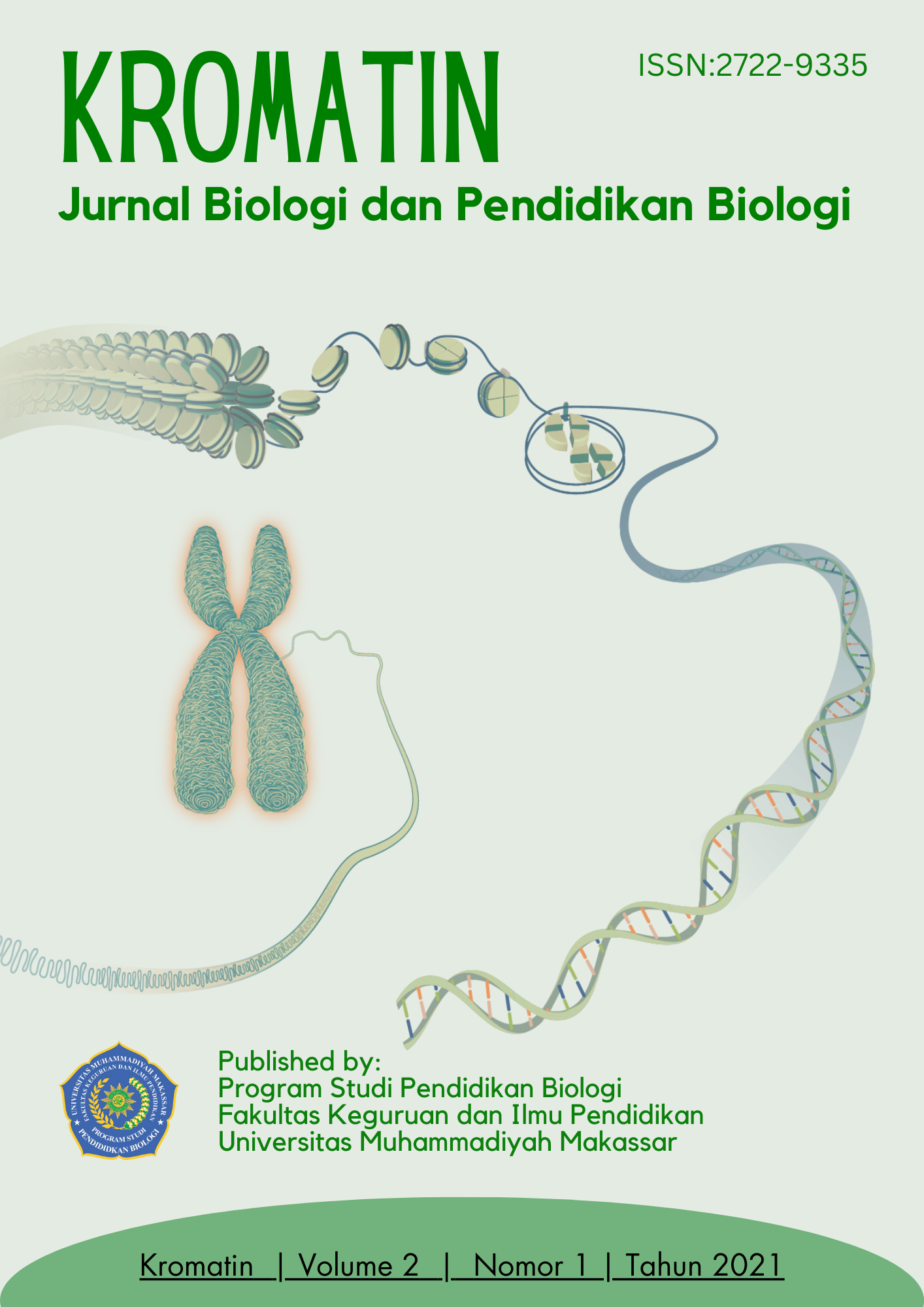Penerapan Model Pembelajaran Kooperatif Tipe Team Assisted Individualization (TAI) dapat Meningkatkan Aktivitas Belajar Biologi Siswa Kelas VIII SMP Negeri 14 Ambon
Abstract
The teacher has a dual role as a teacher and educator in the learning process. The main task of the teacher as a teacher is to assist intellectual, effective and psychomotor development through imparting knowledge, problem solving, effective exercises and skills. And, teachers as educators help mature children psychologically, socially and morally. Apart from being teachers and educators, they also have responsibilities in learning activities so that teachers have a very large role in classroom management. This research is classroom action research with the stages of implementation including: planning, implementing, acting, reflecting, and evaluating repeatedly. The Team Assisted Individualization (TAI) type of cooperative learning model increases the learning activity of biology on the concept of the human movement system for class VIII students of SMP Negeri 14 Ambon. Cooperative learning model type Team Assisted Individualization (TAI) improves learning outcomes of biology on the concept of the human movement system for class VIII SMP Negeri 14 Ambon Keywords: tai, SMP Negeri 14, ambonReferences
Arikunto, dkk. 2008. Penelitian Tindakan Kelas. Jakarta: PT. Bumi Aksara.
Arikunto, Suharsimi. 2007. Dasar-Dasar Evaluasi Pendidikan. Jakarta: PT. Bumi Aksara
Depdiknas. 2003. Kurikulum Berbasis Kompetensi. Jakarta: Pusat Kurikulum.
Fatmawati, Andi. 2008. Peningkatan Hasil Belajar Biologi Melalui Penerapan Model Pembelajaran Kooperatif Tipe Team Asissted Individualization (Tai) Pada Siswa Kelas VIII SMP Negeri 13 Makassar. Skripsi. FMIPA UNM Makassar
Haling, Abdul. 2007. Belajar dan Pembelajaran. Jurusan Pendidikan dan Teknologi Pendidikan Fakultas Ilmu Pendidikan Universitas Negeri Makassar
Ibrahim, M, dkk, 2000. Pembelajaran Kooperatif. Surabaya: Univesity Press.
Kalsum Ummi. 2007. Hubungan Kemampuan Berpikir Logis dengan Prestasi Belajar Siswa Kelas VIIII IPA SMA Negeri 2 Makassar. Skripsi. FMIPA UNM. Makassar.
Krismanto, Al. 2003. Model–Model Pembelajaran Matematika SMP (Makalah Seminar). Yogyakarta: Direktorat Jenderal Pendidikan Dasar dan Menengah Pusat Pengembangan Penataran Guru (PPPG) Matematika Yogyakarta
Mahdianah. 2003. Penerapan Strategi Pembelajaran Kooperatif untuk Meningkatkan Kualitas Pembelajaran Kimia pada siswa Kelas I SMA Negeri Campalagian. Skripsi. FMIPA UNM. Makassar.
Nursyamsia. 2007. Pengaruh Penggunaan Model Pembelajaran Kooperatif Tipe Team Assisted Individuliatazion Terhadap Hasil Belajar Studi Pokok Bahasan Termokimia pada Siswa Kelas VIII IPA SMA Negeri Sungguminasa Gowa). Skripsi. FMIPA UNM .Makassar
Prawirohartono, dkk. 1997. Sains Biologi -2b. Jakarta: Bumi Aksara
Rini Rahmayani Syam. 2008. Peningkatan Hasil Belajar Biologi melalui Penerapam Model Pembelajaran kooperatif Tipe Team Assisted Individualization (TAI) pada siswa Kelas X7 SMA Negeri 2 Makassar. Skripsi. FMIPA. UNM. Makassar
Sardiman, A.M. 2002. Interaksi dan Motivasi Belajar Mengajar. Jakarta: Grafindo.
Simatupang, Halim. 2007. Pendidikan. www.halimsimatupang.blogspot.com. Diakses 2 Februari 2008.
Slameto. 2003. Belajar dan Faktor-Faktor yang Mempengaruhinya. Jakarta: Rineka Cipta
Suherman, Erman. 2008. Model Belajar dan Pembelajaran Berorientasi Kompetensi Siswa. www.educare.e-fkipunla.net. Diakses 14 Juli 2008.
Syamsuri, dkk. 2004. Sains Biologi SMP 2. Jakarta: Erlangga
Tim Penyusun. 2005. Model-model Pengajaran dalam Pembelajaran Ilmu Pengetahuan Alam. Departemen Pendidikan Nasional. Jakarta.
Trianto. 2007. Model-Model Pembelajaran Inovatif Berorientasi Konstruktivistik. Jakarta: Prestasi Pustaka.
Widdiharto. 2004. Model-Model Pembelajaran Matematika SMP (Makalah Seminar). Yogyakarta. Direktora Jenderal Pendidikan dasar dan Menengah Pusat Pengembangan Penataran Guru (PPPG) Matematika Yogyakarta.
Downloads
Published
Issue
Section
License
Authors who publish with this journal agree to the following terms:
1. Authors retain copyright and grant the journal right of first publication with the work simultaneously licensed under a Creative Commons Attribution 4.0 Internasional License that allows others to share the work with an acknowledgement of the work's authorship and initial publication in this journal.
2. Authors are able to enter into separate, additional contractual arrangements for the non-exclusive distribution of the journal's published version of the work (e.g., post it to an institutional repository or publish it in a book), with an acknowledgement of its initial publication in this journal.
3. Authors are permitted and encouraged to post their work online (e.g., in institutional repositories or on their website) prior to and during the submission process, as it can lead to productive exchanges, as well as earlier and greater citation of published work.
Licence:
Authors are free to:
1. Share: Copy and redistribute the material in any medium or format
2. Adapt: Remix, transform, and build upon the material for any purpose, even commercially.
The licensor cannot revoke these freedoms as long as the authors follow the license terms, which include the following:
1. Attribution: Authors must give appropriate credit, provide a link to the license, and indicate if changes were made. Authors may do so in any reasonable manner, but not in any way that suggests the licensor endorses the authors or authors’ use.
2. No additional restrictions: Authors may not apply legal terms or technological measures that legally restrict others from doing anything the license permits.
This work is licensed under a licensed under a Creative Commons Attribution 4.0 Internasional License/ CC BY 4.0.


